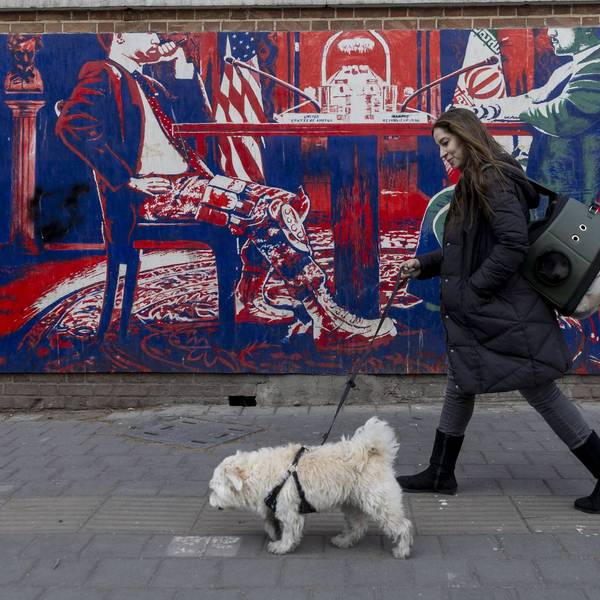Early reports suggest that in his testimony to a congressional committee today, General David Petraeus will claim that the Iranians assisted the Mahdi Army militia to fight the forces of Iraqi prime minister Nuri al-Maliki in the recent week-long battle in Basra. He is expected to offer this "evidence" to oppose any reduction in US troops in Iraq.This is the latest instance of Washington dangling the Iranian menace to persist in its disastrous course in Iraq, starting with its illegal invasion of the country on false pretences.
What happened in Basra and the Sadr City district of Baghdad recently had less to do with Maliki's claim to disarm "rogue" militias than his strategic objective to squash the Sadrist movement as a political force during the run-up to the provincial and local elections on 1 October.
Sadr's popularity among Shias far exceeds that of that Dawa Party which Maliki leads, or the Islamic Supreme Council of Iraq (ISCI) of his ally, Ayatollah Abdul Aziz al-Hakim, which has its own militia, the Badr Brigades. Unsurprisingly, the Badr Brigades were left untouched by Maliki's offensive. That was also true of the militia of the Islamic Fadhila ("Virtue") Party, which controls the Basra port from where oil is exported.
The real threat that Moqtada al-Sadr poses to the Maliki government is political. He is the only leader who has in the past brought out a million people in the streets to mount a peaceful protest. (He has called for such a demonstration tomorrow, in Najaf.) He has proved himself to be a shrewd operator - adroit at knowing when to fight and when to talk - and how to combine the two strategies to maintain his leading position among Shias.
Under normal circumstances, Iran, the most powerful Shia country in the region, treats all religious Iraqi Shia parties equally. Both ISCI (known earlier as the Supreme Council for Islamic Revolution in Iraq, or Sciri) and Dawa have historical links with Iran.
Sciri was established in Tehran in 1982 during the Iran-Iraq war. And Dawa leaders, including Maliki, took refuge in Iran during that eight-year conflict. During his two visits to Tehran in his first 15 months in office, Maliki was received by Iranian president Mahmoud Ahmadinejad as a long-lost brother.
The emergence of the five-year-old Sadrist movement has nothing to do with Iran. When Moqtada's two elder brothers and father were assassinated by Saddam Hussein's agents in 1999, he went underground. It was only after Saddam's overthrow on April 9, 2003, that he surfaced. The fact that he belongs to a family of "martyrs", and that he never left Iraq during Saddam's rule, have contributed to the high standing he has acquired among Shias.
So why did the Iranians assist the Mahdi Army militia at a tactical command level against the forces of Maliki in Basra, if they did? Probably they aimed to frustrate Maliki's adoption of the American neocons' modus operandi of using force as the first option, instead of negotiating with Sadr to reach a political compromise during the ceasefire that Sadrists had observed since last August.
Also, with the Americans and the British intervening on his side, Maliki could no longer claim that his offensive was a purely Iraqi affair. That provided grounds for the Iranians to intervene on the opposite side.
Overall, though, the Iranian government deplored the spectacle of Shias killing one another in Iraq, with the toll mounting to more than 300 in a week. That explained its active involvement in brokering the ceasefire that seems to be holding by and large.



